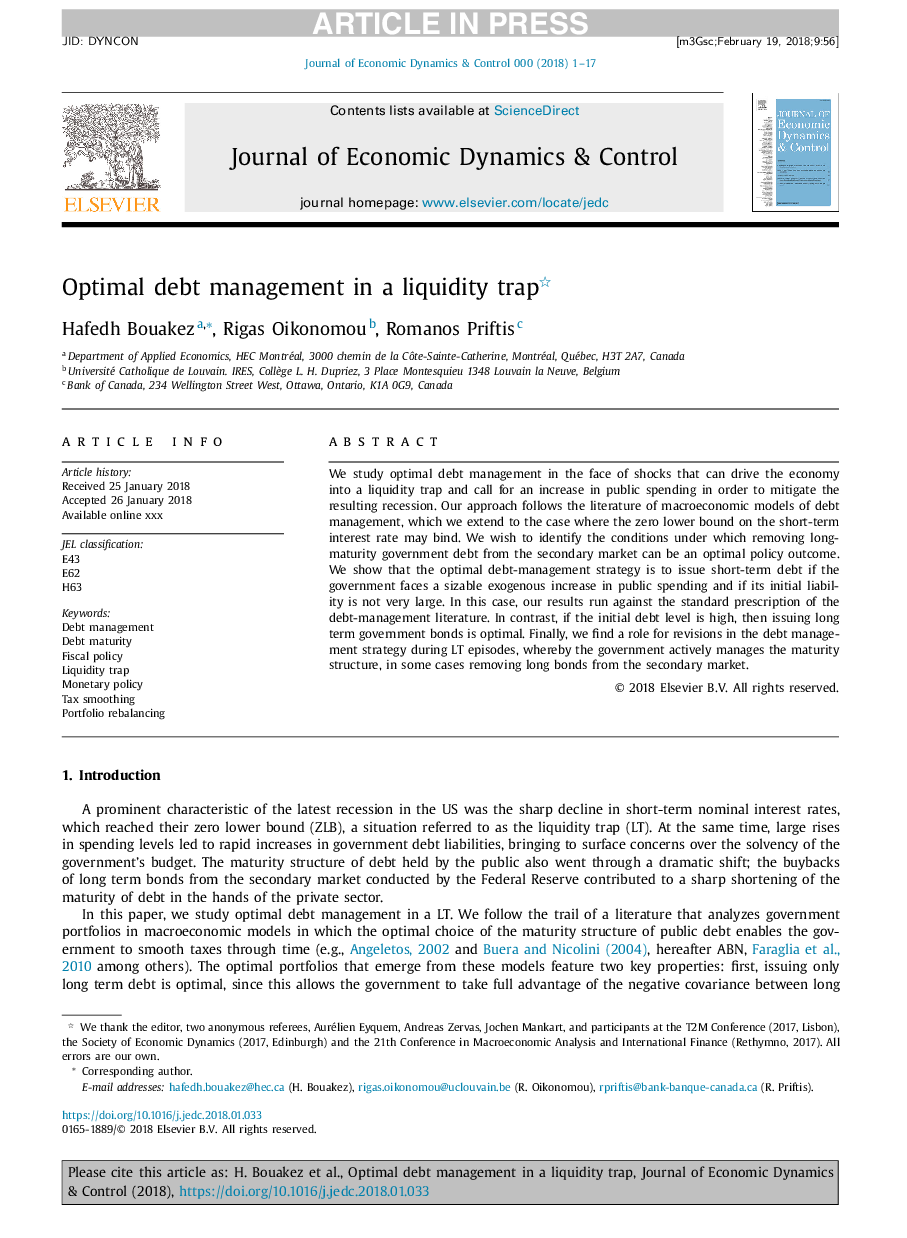| Article ID | Journal | Published Year | Pages | File Type |
|---|---|---|---|---|
| 7358412 | Journal of Economic Dynamics and Control | 2018 | 17 Pages |
Abstract
We study optimal debt management in the face of shocks that can drive the economy into a liquidity trap and call for an increase in public spending in order to mitigate the resulting recession. Our approach follows the literature of macroeconomic models of debt management, which we extend to the case where the zero lower bound on the short-term interest rate may bind. We wish to identify the conditions under which removing long-maturity government debt from the secondary market can be an optimal policy outcome. We show that the optimal debt-management strategy is to issue short-term debt if the government faces a sizable exogenous increase in public spending and if its initial liability is not very large. In this case, our results run against the standard prescription of the debt-management literature. In contrast, if the initial debt level is high, then issuing long term government bonds is optimal. Finally, we find a role for revisions in the debt management strategy during LT episodes, whereby the government actively manages the maturity structure, in some cases removing long bonds from the secondary market.
Keywords
Related Topics
Physical Sciences and Engineering
Mathematics
Control and Optimization
Authors
Hafedh Bouakez, Rigas Oikonomou, Romanos Priftis,
